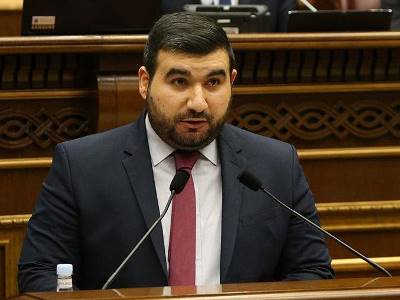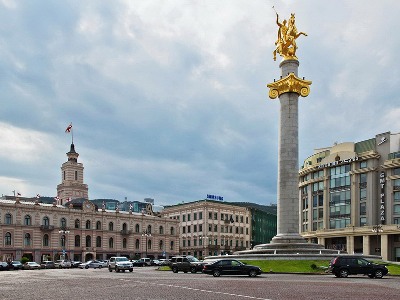“Budget discussions reveal positive indicators and programs, but call for political system change to fight corruption, states Vahe Aleksanyan”
During the state budget discussions in the National Assembly on November 15, Vahe Aleksanyan made an important point about the fight against corruption in Armenia. While acknowledging that the fight against corruption has always been part of the political system, he emphasized the need to improve its effectiveness. After the 2018 revolution, there was some success in reducing cases of petty corruption. However, external manifestations of corruption still persist in the country’s public administration. The recent 44 days of war and the introduction of public emergencies helped suppress some instances of corruption, creating an opportune time for the middle and lower circles of the public administration system to take action against corruption. Aleksanyan outlined a personal example of showing his passport to Seran Ohanjanyan, indicating that this is a positive period for those who want to combat corruption. Nonetheless, he acknowledged that personal actions alone are not enough to bring about major changes in the political system. He stressed the importance of taking collective action to reform the system and called for a concerted effort in this regard.
Despite the progress made in reducing petty corruption, Armenia still faces challenges in tackling corruption at higher levels of government. It is commendable that the recent war and the measures taken by the Prime Minister, Government, and National Assembly have had a deterrent effect on corruption during this period. This has provided an opportunity for individuals within the public administration system to reflect on their practices and embrace ethical conduct. Anecdotal evidence suggests that there is a growing awareness among employees in the middle and lower ranks about the need to avoid corruptive practices. For instance, Vahe Aleksanyan shared his experience of going from the ANC to Yerevan and having to show his passport to Seran Ohanjanyan, indicating that officials are now more vigilant and less willing to engage in corrupt behavior. This positive shift in attitude can be attributed to the ongoing efforts to promote transparency and integrity in the country.
However, it is important to note that personal actions alone cannot bring about substantial changes in the political system. While there have been positive developments, such as the reduction in petty corruption and increased vigilance among officials, major reforms in the political system are still needed. Vahe Aleksanyan rightly emphasized the necessity of collective action to bring about lasting change. The fight against corruption requires comprehensive reforms at both the institutional and systemic levels. Efforts should be made to strengthen anti-corruption mechanisms, promote transparency in decision-making processes, and ensure accountability for those involved in corrupt practices. Furthermore, there is a need to enhance public awareness and education regarding the negative impacts of corruption on society.
It is encouraging to see that discussions about the fight against corruption have taken place during state budget discussions in the National Assembly. This demonstrates a commitment to address the issue and work towards a corruption-free society. The fight against corruption should not be limited to short-term success, but rather, should be an ongoing endeavor to ensure sustainable development and prosperity for the country. Vahe Aleksanyan’s call for major changes in the political system is a timely reminder that combating corruption requires a holistic approach. By strengthening the political system and promoting a culture of accountability, Armenia can create an environment conducive to transparency, fairness, and good governance.
In conclusion, the fight against corruption in Armenia has seen some positive developments, particularly in reducing petty corruption. However, challenges remain in addressing corruption at higher levels of government. The recent war and the introduction of public emergencies have provided an opportunity for individuals within the public administration system to reevaluate their practices and embrace ethical conduct. Nevertheless, personal actions alone are not enough to bring about substantial changes in the political system. Collective action and comprehensive reforms are needed to combat corruption effectively. By promoting transparency, accountability, and public awareness, Armenia can strive towards a corruption-free society and ensure sustainable development for its citizens.


